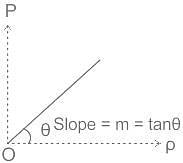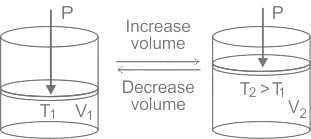EmSAT Achieve Exam > EmSAT Achieve Tests > Test: Ideal Gas - EmSAT Achieve MCQ
Test: Ideal Gas - EmSAT Achieve MCQ
Test Description
10 Questions MCQ Test - Test: Ideal Gas
Test: Ideal Gas for EmSAT Achieve 2025 is part of EmSAT Achieve preparation. The Test: Ideal Gas questions and answers have been prepared
according to the EmSAT Achieve exam syllabus.The Test: Ideal Gas MCQs are made for EmSAT Achieve 2025 Exam.
Find important definitions, questions, notes, meanings, examples, exercises, MCQs and online tests for Test: Ideal Gas below.
Solutions of Test: Ideal Gas questions in English are available as part of our course for EmSAT Achieve & Test: Ideal Gas solutions in
Hindi for EmSAT Achieve course.
Download more important topics, notes, lectures and mock test series for EmSAT Achieve Exam by signing up for free. Attempt Test: Ideal Gas | 10 questions in 10 minutes | Mock test for EmSAT Achieve preparation | Free important questions MCQ to study for EmSAT Achieve Exam | Download free PDF with solutions
Test: Ideal Gas - Question 1
In the process PV = constant, the pressure (P) versus density (ρ) graph of an ideal gas is
Detailed Solution for Test: Ideal Gas - Question 1
Test: Ideal Gas - Question 2
The root mean square speed of molecules of ideal gases at the same temperature are:
Detailed Solution for Test: Ideal Gas - Question 2
| 1 Crore+ students have signed up on EduRev. Have you? Download the App |
Detailed Solution for Test: Ideal Gas - Question 3
Test: Ideal Gas - Question 4
Equal volume of all gases, when measured at the same temperature and pressure, contain an equal number of particles. Who proposed the above law?
Detailed Solution for Test: Ideal Gas - Question 4
Detailed Solution for Test: Ideal Gas - Question 6
Test: Ideal Gas - Question 7
What is the pressure of a 5 liter/mole ideal gas at temperature 27oC?
Detailed Solution for Test: Ideal Gas - Question 7
Test: Ideal Gas - Question 8
What is the specific gravity of CO2 at 27oC and pressure 1 atm with respect to air of with density 1 g/L?
Detailed Solution for Test: Ideal Gas - Question 8
Test: Ideal Gas - Question 9
At constant pressure, the volume of the gas is directly proportional to its absolute temperature. This is the statement of –
Detailed Solution for Test: Ideal Gas - Question 9
Test: Ideal Gas - Question 10
The pressure exerted by an ideal gas is _______ mean kinetic energy of translation per unit volume of gas.
Detailed Solution for Test: Ideal Gas - Question 10
Information about Test: Ideal Gas Page
In this test you can find the Exam questions for Test: Ideal Gas solved & explained in the simplest way possible.
Besides giving Questions and answers for Test: Ideal Gas, EduRev gives you an ample number of Online tests for practice
Download as PDF


























